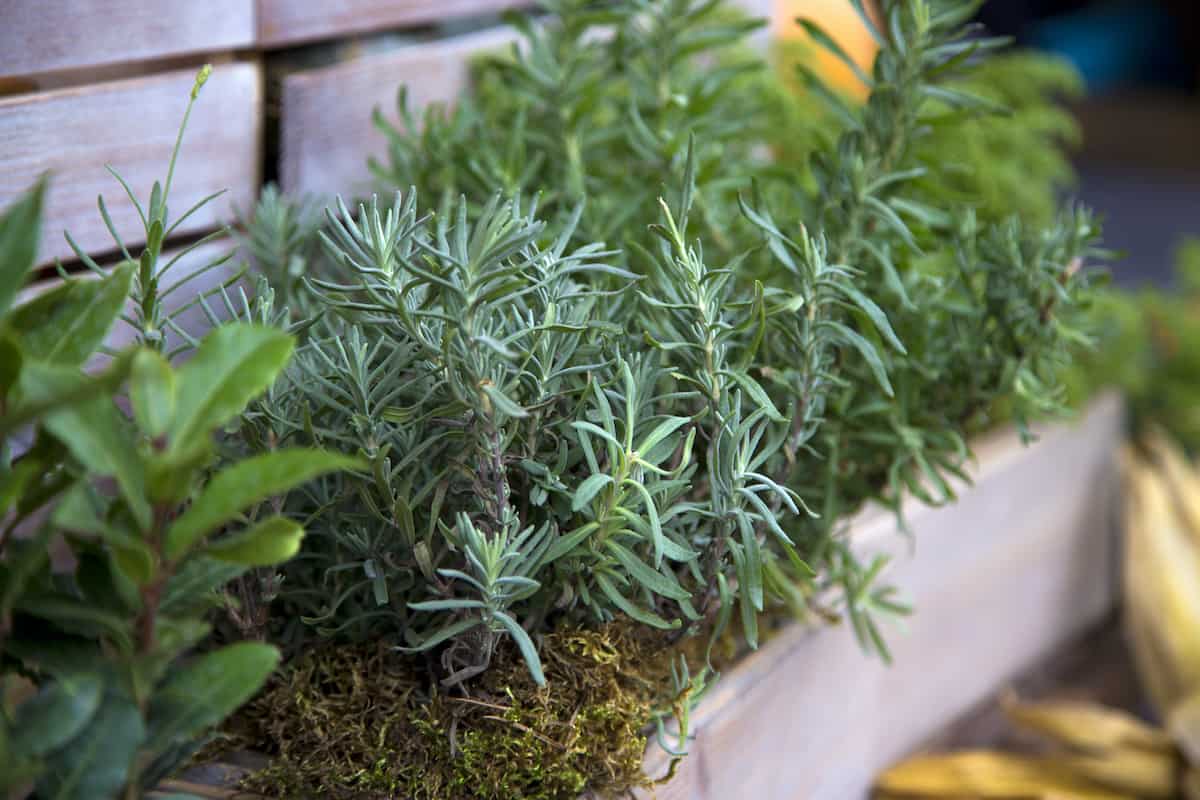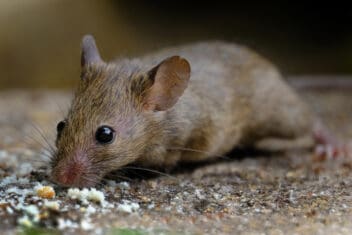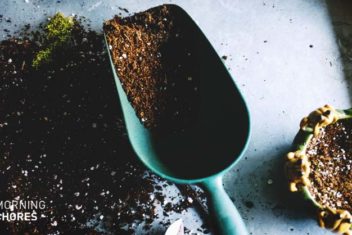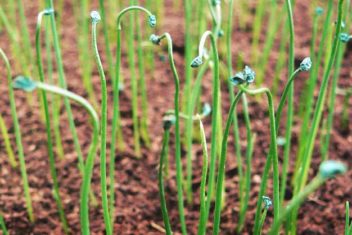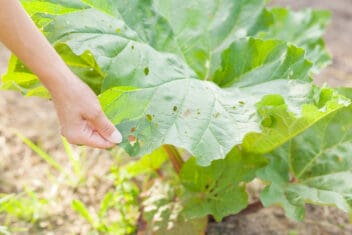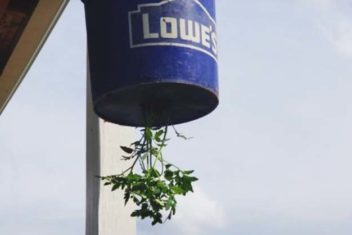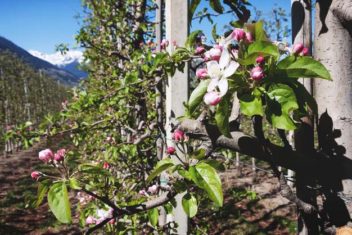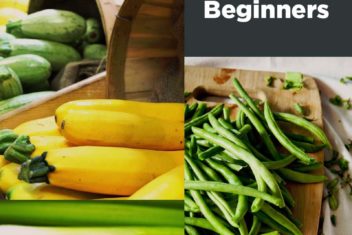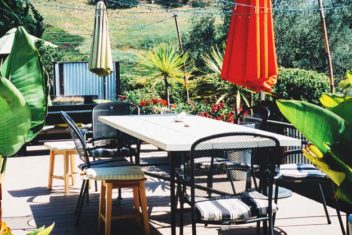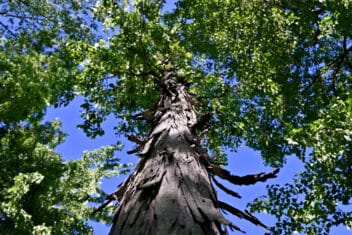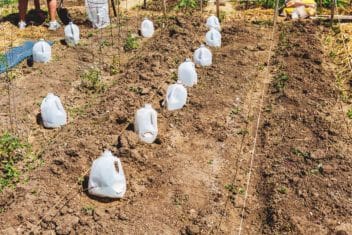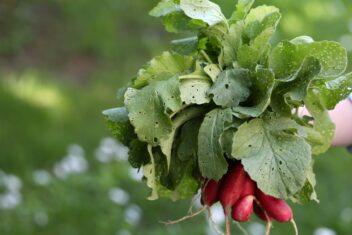We often think of summer as the ideal time for gardening. The warm weather and ample sunlight provide plants with almost everything they need to thrive. For your herbs, however, summer can mean they need a little extra care.
For many, the summer marks the start of the herb harvesting season. Fresh snippets of greenery provide plenty of flavor for summertime salads and BBQ fare. You’ll want to be sure your herbs are thriving in the heat so they can keep providing.
Read on to find out about summer-specific care tips for your herb garden.
Challenges of the Weather
Spring is the perfect time if you’re thinking of starting an herb garden (or maintaining one long forgotten after a harsh winter). Summertime, however, does pose a few notable challenges for herb-growing.
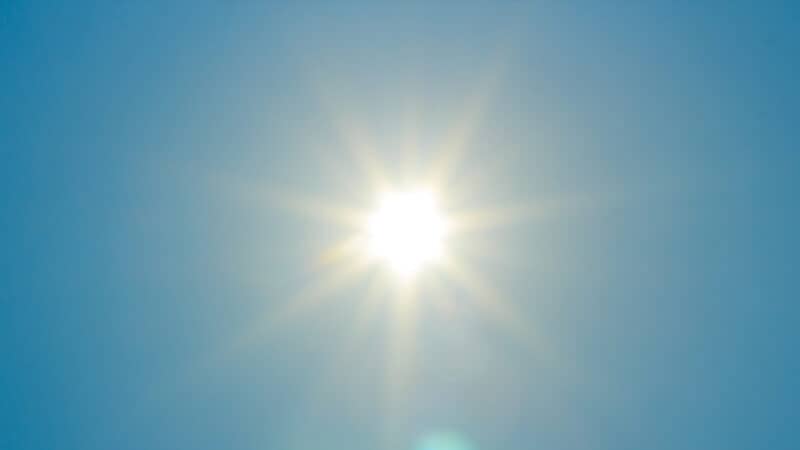
Freshness is the motif of summer. As kids play outside and adults lounge around patios, the garden grows lusher, and hand-picked produce is easier to procure than ever.But not all herbs enjoy the summer as much as we do.
It’s a common misconception that herbs are all sun-loving, heatwave craving maniacs. People tend to pile herbs into one glob of a category, but many herbs have drastically different needs and requirements – especially when it comes to temperature.
Even the most heat tolerant herb, however, can suffer at the height of the summer. When the weather is suffocating and almost unbearable for a human, you can bet your plants are having an equally tough time.
So how does hot weather impact herbs? That depends entirely on the herb plant in question!
What’s Bugging My Herbs?
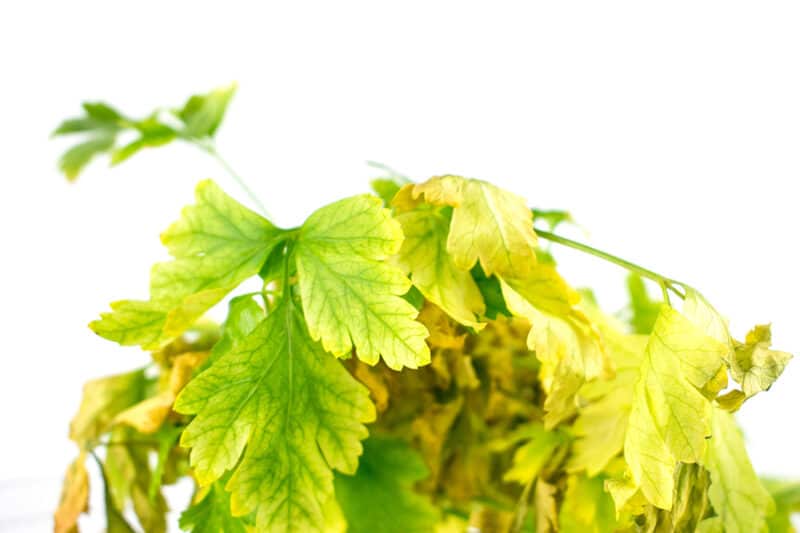
Let’s go over a few misconceptions that often cause unhappy herb plants, especially when the weather gets hot:
- All herbs need lots and lots of sun and heat: Not true. Some herbs prefer some shade and will do just fine cooler weather. Too much heat and sun actually promote bolting in some herbs.
- All herbs are fine with dry soil: This just isn’t factual. Herbs have different water preferences. For instance, rosemary is relatively content with dry soil and doesn’t like its home soil to be forever moist. Mint, though, is a thirsty plant.
- Herbs are all-natural pest repellents: This is sort of correct. Many herbs, especially those with strong scents (e.g., rosemary, chives, and mint), are excellent natural pest deterrents. Not all herbs will defend against all pests, though. Proper planning is vital. Some knowledge of companion planting is required to get the maximum pest-prevention benefits from herbs.
- Herbs are great for tiny containers: This is the myth that bothers me most because I see so many people happily bringing home herbs plants later complaining that their precious potted basil bit the dust shortly afterward. Herbs, like most plants, don’t appreciate a crowded living space. When you get home from the nursery, re-pot your herb plant in a generously sized vessel.
- Herbs last forever:Some people seem to think that herb plants will survive for all eternity. Not so. Eventually, herb plants will bolt, flower, and stop producing.
- All herbs are perennial:Even if herbs don’t last forever, it’s great that they’re all perennial, right? Nope. While many herbs come back each year, many are annual. Even perennial herbs might not return in your climate. Read the variety info carefully before assuming your newly planted herb bush will necessarily re-sprout in the spring.
So now that we know the reality of the situation, we know what to watch for. Dry soil or constantly wet soil, too much direct sunlight, or crowded conditions can all make your plants unhappy.
This is all the more true during the summer, when plants tend to get stressed. So what do you do? That’s the next section.
How to Care for Herbs During the Summer
When a heatwave is imminent, pay close attention to the following:
Watering Schedule
Unless you’re dealing with a drought-tolerant herb variety, herbs need plenty of moisture. Don’t assume you can neglect your herb garden because you’ve heard that an herb originates from a hot climate.
Harvesting
Keep up with your harvesting. Letting them flower encourages bolting, or going to seed, which can turn fresh and tasty cilantro leaves bitter and soapy-tasting. Have a plan for your herb plants. Don’t leave them to grow unfettered.
Harvesting also improves air circulation, which can stave off fungal diseases that attack when it gets hot and muggy.
On top of that, frequent harvesting encourages the plant to focus on its growth and establishing a strong root system rather than fruiting.
Harvest frequently and use the leaves and clipping in the kitchen.
If you’re cooking small quantities, keep freshly harvested herbs in water in the fridge to prevent spoilage. With a bit of foresight, you can prep herbs for freezing or use them in batch preparations destined for the freezer (e.g., herb butter, tomato sauce, pizza sauce, etc.)
Deal with Bolting
It’s a natural part of growth for plants, but I really hate contending with the reality of bolting.
Just last week, I was forced to pluck immature spinach seedlings because they had sprouted and were already going to seed.
You can’t stop or slow the process for many plants since it’s tough to control temperatures and stop heat waves. With herbs, though, it’s possible to slow the bolting process and extend the harvest.
Plants bolt because they are attempting to go to seed. Usually, bolting is triggered by hot weather.
In many plants, bolting irreparably changes the flavor and texture, and the plant is less appealing to the human palate.
While bolting is often a pain in the butt, it’s sometimes beneficial to see the process through. Bolting produces seeds, and plants can self-seed this way. You can also harvest and save the seeds for next season.
Bolting also produces flowers that attract a host of beneficial garden friends.
Just because an herb plant has produced flowers, doesn’t mean it’s no longer suitable to eat. Some plants that bolt and flower turn inedible. Spinach, for instance, turns bitter. Rapini stems become woody and tough to chew.
Basil, though, doesn’t taste nasty when flowers have appeared and can still be harvested. Pinching back the flowers on basil and several other herb plants help create a bushier plant and encourage continued growth.
In the case of chives, the flowers are edible and don’t affect the plant’s growth or flavor. They’re also very pretty to look at!
In some cases, when bolting occurs, you’re too late, and it’s the end of the road for the plant in question. Cilantro, for example, is beyond rescue once it has bolted. In other cases, pinching back the flowers is an appropriate remedy.
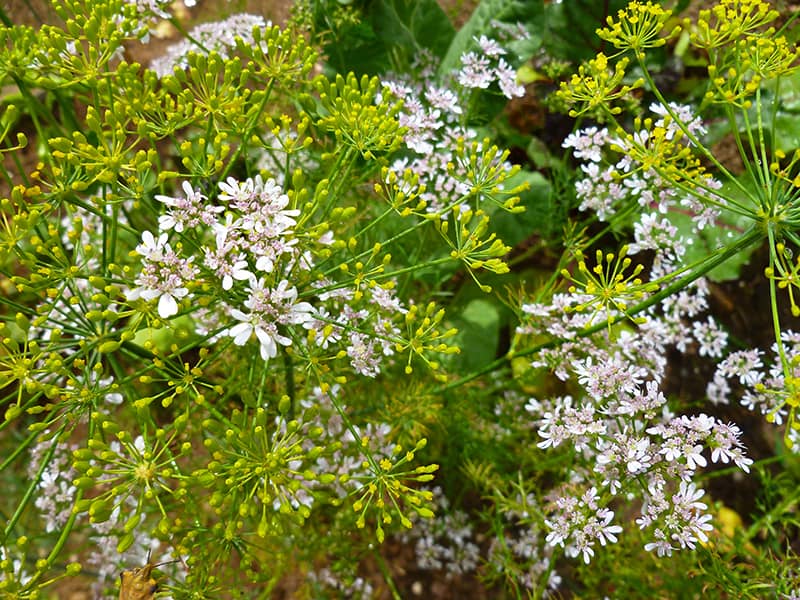
Is there a way to stop or slow bolting? Yes! Here are a few strategies to keep your herb plants from going to seed:
- Remove flowers ASAP
- Snip, snip, snip – keep on harvesting!
- Move plants to a cooler spot
- Use mulch to cool the soil
Provide Cover
Plants that don’t need full sun may need some extra protection during the heat of the day. This could mean moving container plants into a shadier area or putting some shade cloth over plants that gives them protection when the sun is at its strongest.
Don’t forget the roots! Put plenty of mulch around the base of your plants to keep roots cool and retain moisture.
Heat-Loving Herbs
Okay, we’ve covered the myth that all herbs love the heat, but there’s definitely some truth to it. Plenty of herbs love full sun conditions. Here’s a list of herbs that enjoy summer weather:
Cool-Season Herbs
These herbs thrive in cooler weather, and many among them tolerate partial shade:
- Chervil
- Sorrel
- Salad burnet
- Parsley
- Chives
- Cilantro
These herbs need some extra care in the summer.
Indoor or Outdoor
Herbs grow well indoors and outdoors. Consider tending to a few herb plants indoors if you lack outside space for a kitchen herb garden. The closer your little herb garden is to the kitchen, the better.
Indoor plants require a bit more attention since Mother Nature isn’t around to help out. Water frequently but never enough to allow plants to sit in a puddle. Trim and pinch off growth regularly and pick a spot with bright sunlight.
The bright side is that indoor gardening saves you the trouble of having to change your routine up when summer comes around. Herbs indoors need less special summer care than herbs outdoors.
The biggest mistake people make when cultivating indoor herb gardens is choosing containers that are much too small. You’ll run into fewer problems and have lusher plants if you provide them with enough breathing room.
